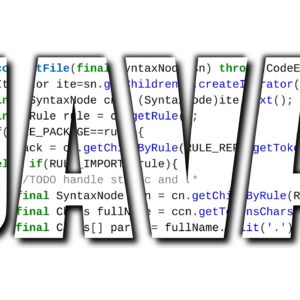Java Syllabus/Curriculum (9-15Y)
Level 1:
This level focuses on the very basics of Java programming. It is particularly important in that most Java students will see it. As such, classes are generally slower paced and provide multiple opportunities to practice all knowledge points in small projects.
By the end of this level, students should be able to:
- Use the console for output
- Create and use variables
- Use Scanners for input
- Use conditional statements such as if and else
- Use for and while loops to condense and repeat code
- Use arrays to store and organize data
- Create some fun projects!
Level 2:
This level focuses primarily on ArrayLists and functions, as well as a variety of smaller topics that build towards a solid skillset.
By the end of this level, students should be able to:
-
- Write basic functions and implement them
- Use functions for a variety of purposes
- Understand and effectively use recursion
- Use ArrayLists to store information
- Know the differences between arrays and ArrayLists
Level 3:
This level focuses largely on classes and objects, which make up the last of the essentials of object based programming languages. As there is relatively less content but the difficulty is higher, there are more projects based around making sure students understand objects and letting them have fun with them.
By the end of this level, students should be able to:
-
- Understand and be able to implement basic features of objects (far more complex than it sounds!)
Level 4
This level focuses on the students who really want to learn about the more specific advanced topics that aren’t covered in the previous levels. Most students will not get this far, nor will they generally need the topics covered in this level. Furthermore, some of the topics are rather difficult to design activities around. As a result, the structure of the class changes to a more traditional lecture-based one.
By the end of this level, students should be able to:
- Know the differences between and implement more data structures, such as Stacks, Queues, Trees, Hashes, and Maps
- Use more advanced techniques used with classes, including encapsulation, polymorphism, abstraction, and inner classes
- Identify the uses for and implement interfaces and enums
- Have more general knowledge on topics such as exceptions, using imports, and packages





Reviews
There are no reviews yet.